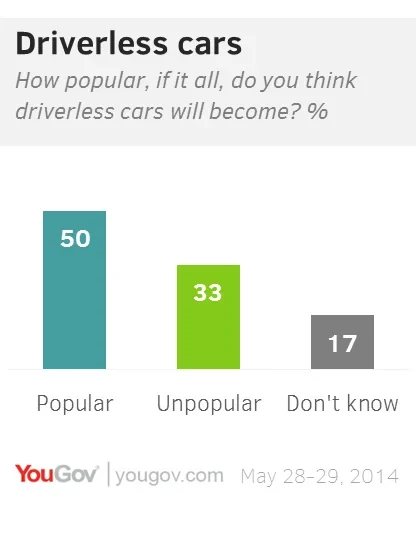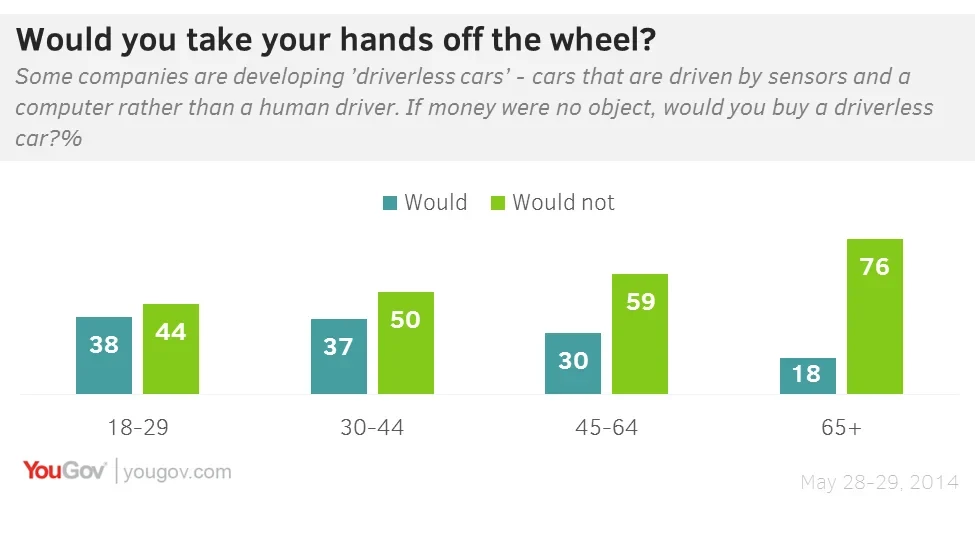Most Americans wouldn't buy a driverless car, but people still expect them to become popular some day

Earlier this week on Tuesday Google unveiled their latest technical innovation. This time, instead of a new cloud platform or mobile device, the company unveiled a car. Google's car won't be like any you've ever got into before, however, as it lacks both brakes and a steering wheel. Instead the car's computer will drive, sensing when to break and where to go based on directions you give it. Google has spent years testing self-driving cars, on test tracks and in public but this is the first time it has unveiled a vehicle that is entirely designed to be self-driving.
The latest research from YouGov shows that half of the country think that, at some point in the future, driverless cars will become a popular mode of transportation. A skeptical third of the country say that driverless cars won't become as popular as Google bosses are hoping.
The skeptics could be right, as 56% of the country say that they would not buy a driverless vehicle, though 32% said that they would - provided money was no object. Younger Americans are far more likely to want to buy a driverless car, though even the under-30s tend to say that they wouldn't (44%) rather than would (38%) buy such a car. The older you get, the more likely you are to dislike driverless cars, with only 18% of over-65s saying that they would purchase one.

Full poll results can be found here.









